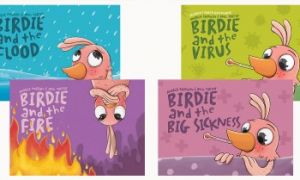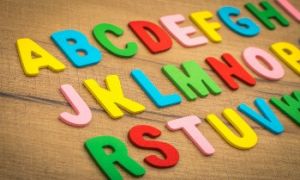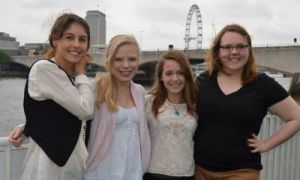

Reflection and critical reflection are both essential practices in education. While they sound similar, they serve different purposes. Understanding the distinction helps educators know when to use each and how they contribute to professional growth and improved outcomes for children.
The start of a new year is a powerful moment for educators to pause and reflect. Beyond compliance requirements, it’s an opportunity to reconnect with the values that guide our practice. By intentionally setting a vision rooted in values, educators can ensure that compliance becomes a scaffold for authentic engagement rather than a burden.
The start of a new year is more than a reset—it’s a chance to align compliance responsibilities with authentic engagement. Reflective practice ensures educators move beyond “checking boxes” to create joyful, culturally rich, and sustainable learning environments.
Early childhood education is a dynamic and deeply relational field. Educators are constantly navigating children’s diverse needs, family expectations, and systemic requirements. To sustain quality practice, reflection is essential. Reflection allows educators to pause, analyze experiences, and adapt their approaches to better support children’s learning and well-being.
One powerful framework for reflection is Gibbs Reflective Cycle (1988). Widely used in education, healthcare, and professional development, it provides a structured way to think critically about experiences and plan for improvement. In early childhood, Gibbs Cycle helps educators move beyond surface-level observations to deeper insights about pedagogy, relationships, and environments.
Reflections are powerful tools for growth, learning, and connection. Whether used in education, professional practice, or personal journaling, a strong reflection goes beyond recounting events—it captures authentic experiences, explores emotions, and identifies lessons that shape future actions. This checklist is designed to help writers and evaluators ensure that reflections are meaningful, structured, and impactful. It can be used by students, educators, colleagues, or anyone seeking to deepen their reflective practice.
This template is designed to help educators meaningfully capture and communicate the richness of children’s learning.
This template is designed to support educators in making sense of everyday practice, complex decisions, and emotionally charged moments.
 Here is the list of the EYLF Learning Outcomes that you can use as a guide or reference for your documentation and planning. The EYLF… Read More
Here is the list of the EYLF Learning Outcomes that you can use as a guide or reference for your documentation and planning. The EYLF… Read More
 The EYLF is a guide which consists of Principles, Practices and 5 main Learning Outcomes along with each of their sub outcomes, based on identity,… Read More
The EYLF is a guide which consists of Principles, Practices and 5 main Learning Outcomes along with each of their sub outcomes, based on identity,… Read More
 This is a guide on How to Write a Learning Story. It provides information on What Is A Learning Story, Writing A Learning Story, Sample… Read More
This is a guide on How to Write a Learning Story. It provides information on What Is A Learning Story, Writing A Learning Story, Sample… Read More
 One of the most important types of documentation methods that educators needs to be familiar with are “observations”. Observations are crucial for all early childhood… Read More
One of the most important types of documentation methods that educators needs to be familiar with are “observations”. Observations are crucial for all early childhood… Read More
 To support children achieve learning outcomes from the EYLF Framework, the following list gives educators examples of how to promote children's learning in each individual… Read More
To support children achieve learning outcomes from the EYLF Framework, the following list gives educators examples of how to promote children's learning in each individual… Read More
 Reflective practice is learning from everyday situations and issues and concerns that arise which form part of our daily routine while working in an early… Read More
Reflective practice is learning from everyday situations and issues and concerns that arise which form part of our daily routine while working in an early… Read More
 Within Australia, Programming and Planning is reflected and supported by the Early Years Learning Framework. Educators within early childhood settings, use the EYLF to guide… Read More
Within Australia, Programming and Planning is reflected and supported by the Early Years Learning Framework. Educators within early childhood settings, use the EYLF to guide… Read More
 When observing children, it's important that we use a range of different observation methods from running records, learning stories to photographs and work samples. Using… Read More
When observing children, it's important that we use a range of different observation methods from running records, learning stories to photographs and work samples. Using… Read More
 This is a guide for educators on what to observe under each sub learning outcome from the EYLF Framework, when a child is engaged in… Read More
This is a guide for educators on what to observe under each sub learning outcome from the EYLF Framework, when a child is engaged in… Read More
 The Early Years Learning Framework describes the curriculum as “all the interactions, experiences, activities, routines and events, planned and unplanned, that occur in an environment… Read More
The Early Years Learning Framework describes the curriculum as “all the interactions, experiences, activities, routines and events, planned and unplanned, that occur in an environment… Read More

Children's Health Queensland has developed a range of storybooks for children on natural disasters and...
See more...
A literacy-rich environment is one that gives children numerous opportunities to engage in emergent literacy...
See more...
Working as a childcare professional enables you to interact with children, their families, co-workers and...
See more...© 2009-2026 Aussie Childcare Network Pty Ltd. All Rights Reserved.

